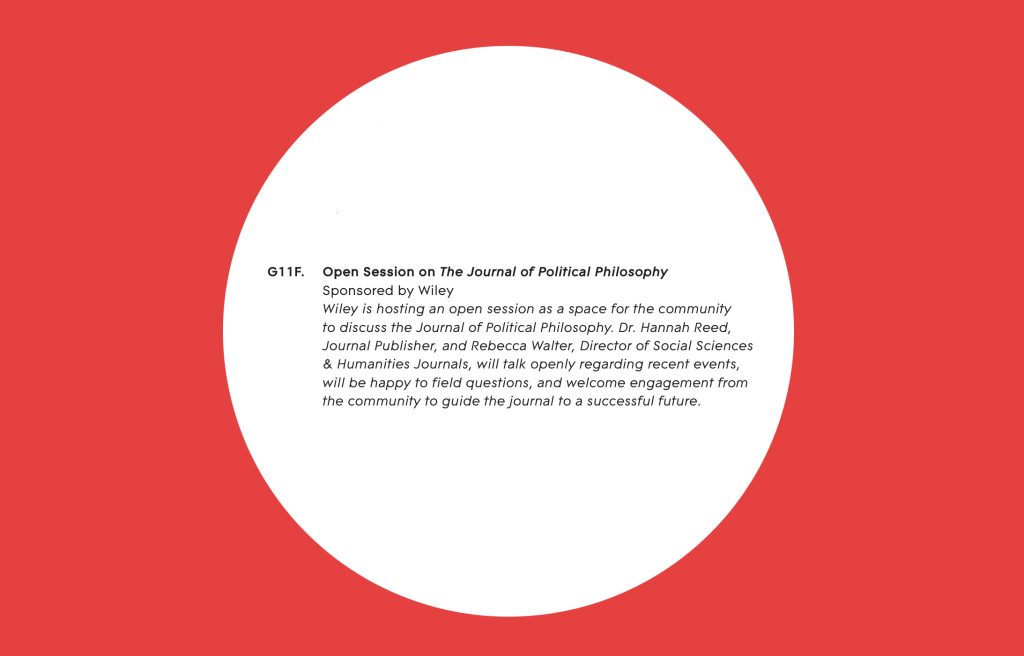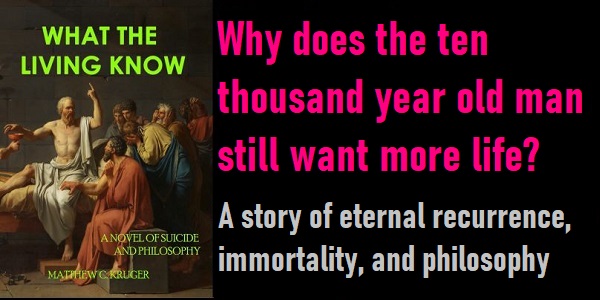editors
Article’s Acceptance “On Hold” Following Complaints on Social Media
An article that was accepted for publication in a special issue of The New Bioethics is now “on hold” following postings critical of the article on X (Twitter).
The article is “Abortion Restrictions are Good for Black Women” by Perry Hendricks, a recent PhD in philosophy from Purdue University.
Here’s the abstract:
Abortion restrictions are particularly good for black women—at least in the United States. This claim will likely strike many as outlandish. And numerous commentaries on abortion restrictions have suggested otherwise: many authors have lamented the effects of abortion restrictions on women, and black women in particular—these restrictions are bad for them, these authors say. However, abortion restrictions are clearly good for black women. This is because if someone is prevented from performing a morally wrong action, it’s good for her. For example, it’s good for Sarah if she’s prevented from driving home drunk. However, since abortion is morally wrong, it follows that it’s good for women when they are prevented from getting an abortion. And since black women get abortions at disproportionately high rates, abortion restrictions are good in particular for black women. Indeed, this is an example of a positive effect of intersectionality.
The paper argues for a moralistic paternalism, assumes abortion is wrong, and draws out the implications for that combination, contextualizing this within the rhetoric of contemporary political debates over abortion.
The paper was accepted:

Hendricks listed the article as forthcoming. This was noticed by Chloe Romanis, a professor of law at Durham University, who wrote on X (Twitter): “I cannot with the state of the field of bioethics – how is stuff like this – patent sexism, racism and moralism about healthcare – getting through peer review.”

The comment, which was shared widely across X, was followed by an email to Hendricks informing him that the publication of his article was “on hold pending further review”:

Following an inquiry about this to the editor-in-chief of the journal, Matthew James (St. Mary’s University), I received an email from a Taylor & Francis “corporate media relations manager” who told me:
I can confirm that the article ‘Abortion restrictions are good for black women’ was put on hold after several complaints were raised. This is standard procedure for articles that are not yet published. A review of the editorial handling of this article found that it had been accepted for publication by the Special Issue Guest Editor. However, the policies in place at The New Bioethics require that the Editor-in-Chief, and not the Special Issue Guest Editor, must be assigned all articles for final approval before any acceptance decision. The Editor-in-Chief is now conducting this final review.
Readers may recall from this previous episode, which led to a profession-wide discussion of the editorial procedures at special issues of journals (see, for example, here and here), that it’s a good idea for editors-in-chief to be accountable for what appears in special issues with guest editors.
So is this just a procedural error? It strikes me as odd that the editorial software used by Taylor & Francis would allow for an author to receive an official acceptance of their article when the article has not been approved by the relevant parties.
But maybe that’s what happened. If so, it would be reasonable to think that it also happened for other articles scheduled for publication in this special issue of The New Bioethics, and perhaps previous special issues of the journal as well. It would be quite the coincidence if the only article for which this problem with the editorial process popped up was one that was complained about on social media.
That is, it’s not surprising that Hendricks’ provocatively-titled article drew complaints on social media that might have brought the procedural error to the attention of the publishers; but it would be surprising if it were the only article subject to that procedural error. If it were, that would raise other questions.
I asked both the Taylor & Francis spokesperson and the editor of the special issue, a current PhD student, how many other articles in the issue this had happened to, but have not yet heard back on this from either. I’ll update the post if I do.
Meanwhile, readers may be curious about the line in the spokesperson’s response to me, that putting the publication of an accepted-but-not-yet-published article on hold after social media complaints about it are raised is “standard procedure” at Taylor & Francis. I had not heard anything like this before, and I wonder how many people editing Taylor &Francis philosophy journals or submitting work to them or refereeing for them know about this.
The post Article’s Acceptance “On Hold” Following Complaints on Social Media first appeared on Daily Nous.
Notably Good Experiences with Philosophy Journals
As stories of philosophy journal horror stories continue to come in, one commenter made a suggestion.
[This post was originally published on March 3, 2021. It has been reposted by request of a reader.]

[Jim Picôt, “Love Heart of Nature” (photo of shark swimming in a heart-shaped school of salmon)]
If part of the reason for sharing such stories was to possibly reveal some common problems or patterns with an important part of the world of academic philosophy, then, says Kaila Draper, “Maybe we should have a thread about really good experiences with referees and journals so that more patterns can be detected.”
Good idea!
Readers, if you’ve had a delightful, beneficial, super-efficient, caring, understanding, or even just notably good experience with a philosophy journal, please share it.
And just to get it out of the way, while we are very happy for you, “They accepted my article!” doesn’t qualify.
The post Notably Good Experiences with Philosophy Journals first appeared on Daily Nous.
Philosophy Journal Horror Stories (updated)
By request, here is a post for people to share their journal “horror stories.”
[Originally posted March 2, 2021; reposted by request.]

Why? For one thing, it may be a relief to learn that the universe, or at least the journals, are not out to get you in particular. But also, there is the possibility, suggested by one of those making the request, that the stories, in the aggregate, reveal some patterns or issues that we can then figure out how to address.
Before we begin, now would be a good time to invoke my multi-purpose adage, “philosophers are people, too.” That includes the philosophers who are the editors of and referees for academic journals. People make mistakes, people have multiple demands on their time, people get tired, and so on. Further, these people are often volunteers or inadequately compensated, adding to their busy lives the various responsibilities of maintaining a significant portion of our professional ecosystem. So even when we may be sharing stories that reveal their imperfections, I think it is important to register appreciation for all the work they do.
UPDATE (3/2/21): A few complaints in the comments below about Pacific Philosophical Quarterly prompted a reply from Janet Levin (USC), chair of the editorial committee of the journal. In it, she writes:
We recently discovered that, due to a major error in our record-keeping process, over 100 manuscripts submitted to the PPQ over a period of a little over a year were misclassified as having undergone an initial review. There was a confluence of factors that allowed the error to go undetected for so long, some due to COVID-19, some technological, and others due to a diffusion of responsibility in the reviewing process – these factors also contributed to some failures to respond to author inquiries. When we discovered the extent of the problem we made the difficult decision to try to clear the backlog as quickly as possible, and therefore (i) to do an unusually thorough reading of papers during the internal review process to enable us to get results back to authors as quickly as possible, and (ii) not to give comments on papers that we did not send out for external review. We understand the costs of having a paper tied up at a journal for so long, and recognize the burden it places on authors waiting for a response. I take full responsibility for this unfortunate situation and apologize sincerely for our lapse. We are overhauling our processes for submission and evaluation of manuscripts to make sure not only that nothing like this happens again, but also that, going forward, the PPQ can be exemplary in giving authors quick decisions. We will announce more concrete steps in this regard soon, including a new faculty editor who will be taking over after the end of this semester.
UPDATE (3/5/21): Regarding Oxford Studies in Ancient Philosophy (mentioned in a couple of the comments below), current editor Victor Caston (University of Michigan) reports that this past October he told the journal’s publisher, Oxford University Press, that he would not be seeking to renew his contract with them when it expired. It is now expired, and Professor Caston is maintaining the journal while waiting for OUP to put a new editor or editorial team in place. See also this post at Endoxa from Caleb Cohoe (Metropolitan State University of Denver).
Note: The new comment platform appears to have carried over previous email-name affiliations. That is, it will think your name is whatever you previously used as your name when you last commented with that email address. So even if you enter in a new handle, your comment may be sent to subscribers with your old name, or if you edit your comment, it may publicly attribute that edit to your old name. In general, I encourage commenters to use their real names; so I hope that most of the time, for most people, this will not be an issue. But if you think it is important to use a pseudonym on this post, I suggest that when commenting you enter an email address you haven’t previously used here before. (Email addresses are not revealed to the public.)
Additional note about pseudonyms: as per the comments policy, pseudonyms may not contain the words “anonymous, “anon,” etc.
The post Philosophy Journal Horror Stories (updated) first appeared on Daily Nous.
Ethics Has a New Editor
Douglas W. Portmore, professor of philosophy at Arizona State University, is the new editor-in-chief of Ethics.

Previous editors Julia Driver and Connie S. Rosati (both of the University of Texas, Austin) stepped down at the end of 2023.
Professor Portmore had been one of the associate editors at Ethics.
Asked for a statement about his new position, he replied:
Ethics is, I believe, the leading journal in philosophical ethics, and so I’m humbled by the awesome responsibility of taking over for Julia Driver and Connie Rosati. I’m grateful to them for their hard work and excellent leadership over the past five-plus years. I’m especially thankful for their having expertly stewarded the journal through some difficult times during the pandemic.
Ethics is an exceptionally well-run journal. We have a great team of associate and book review editors. And our managing editor, Joseph Muszynski, is superb. Given this, I don’t have any plans to take the journal in any new directions or to implement any major editorial policy changes. I see my task as ensuring that the journal continues both to run smoothly and to enjoy the prestige that it has deservedly garnered. My main focus, then, will be on shortening review times, especially the time for the initial vetting by me, the Editor. I hope to get this down to no more than a couple of weeks and, hopefully, even shorter than that. I’m currently working through a small backlog of submissions that I inherited, but I expect to have it cleared within a month or so.
I want to encourage those with high-quality and important work in ethics to submit their papers to Ethics. I’m committed to making sure that these papers get a fair hearing and that the review process is as quick and efficient as practicable. And I’m open to all work (regardless of methodology, or perspective) in moral, social, political, and legal philosophy. My sole goal is to ensure that what gets published in Ethics is what it is important for people working in these areas to read. That said, I am committed to the work that we publish being accessible to a broad readership within philosophy and beyond. This prevents me from accepting some very high-quality work that is accessible only to a narrow, highly specialized audience.
Lastly, let me remind everyone to direct all questions regarding actual or possible submissions to the Managing Editor, Joseph Muszynski, at jmuszynski@uchicago.edu. Please do not write directly to me or to an associate editor with such questions, as doing so will compromise our triple-blind review procedures.
You can learn more about Professor Portmore’s research here.
The post Ethics Has a New Editor first appeared on Daily Nous.
Session on the Journal of Political Philosophy at Upcoming APA
The upcoming Eastern Division meeting of the American Philosophical Association (APA) will include a session on the Journal of Political Philosophy, in light of the uproar following the decision of its publisher, Wiley, to fire the journal’s editor and founder, Robert Goodin (ANU).

The decision, made in April, is scheduled to take effect at the end of this month.
In protest of the decision, the rest of the journal’s editorial team and its advisory board resigned.
The decision prompted a statement of non-cooperation with the journal that, as of today, has been signed by 1107 academics who work in areas covered by the journal. The statement says:
In light of:
-
-
- the recent decision taken by John Wiley and Sons to terminate Prof. Robert Goodin’s editorship of the Journal of Political Philosophy at the end of 2023,
- the consequent resignations of the vast majority of the journal’s editorial board,
- and the inadequate explanation offered by Wiley as to their decision,
-
we the undersigned resolve, from the point at which Prof. Goodin is no longer the editor of the journal, to:
-
-
- decline any invitation to join the editorial board of the journal,
- refuse any request to review papers submitted for publication in the journal, and
- refrain from submitting any papers for publication in the journal
-
unless and until:
-
-
- the decision to terminate Prof. Goodin’s editorship is rescinded,
- full editorial independence of the editors over the journal’s publications is restored, and
- all questions concerning the future relationship between Wiley and the journal are resolved to the satisfaction of the editorial board as recently constituted.
-
The session is being put on by Wiley as part of the group program. Here’s the description:
Wiley is hosting an open session as a space for the community to discuss the Journal of Political Philosophy. Dr. Hannah Reed, Journal Publisher, and Rebecca Walter, Director of Social Sciences & Humanities Journals, will talk openly regarding recent events, will be happy to field questions, and welcome engagement from the community to guide the journal to a successful future.
It is taking place Wednesday, January 17th, at 11:00am.
Philosophers who work in political philosophy and related areas, philosophers concerned with the relationship between for-profit publishers and academic workers, and philosophers who value editorial independence, among others, may be interested in attending the session.
It is not known whether Wiley’s efforts to constitute a new editorial team for the journal have been successful.
The post Session on the Journal of Political Philosophy at Upcoming APA first appeared on Daily Nous.
New Editors for JESP Announced
The current executive editor of the Journal of Ethics & Social Philosophy (JESP) is stepping down, and the journal will be getting a new pair of editors and new institutional home.

Mark Schroeder of the University of Southern California (USC) has been editor of JESP since December, 2014. In an editorial in the new issue of the journal, he announced that its leadership will pass to Sarah Paul and Matthew Silverstein, and institutional support for the open access publication will become the responsibility of their institution, New York University Abu Dhabi.
Paul and Silverstein will take charge of the journal effective January 1st, 2024.
The post New Editors for JESP Announced first appeared on Daily Nous.

